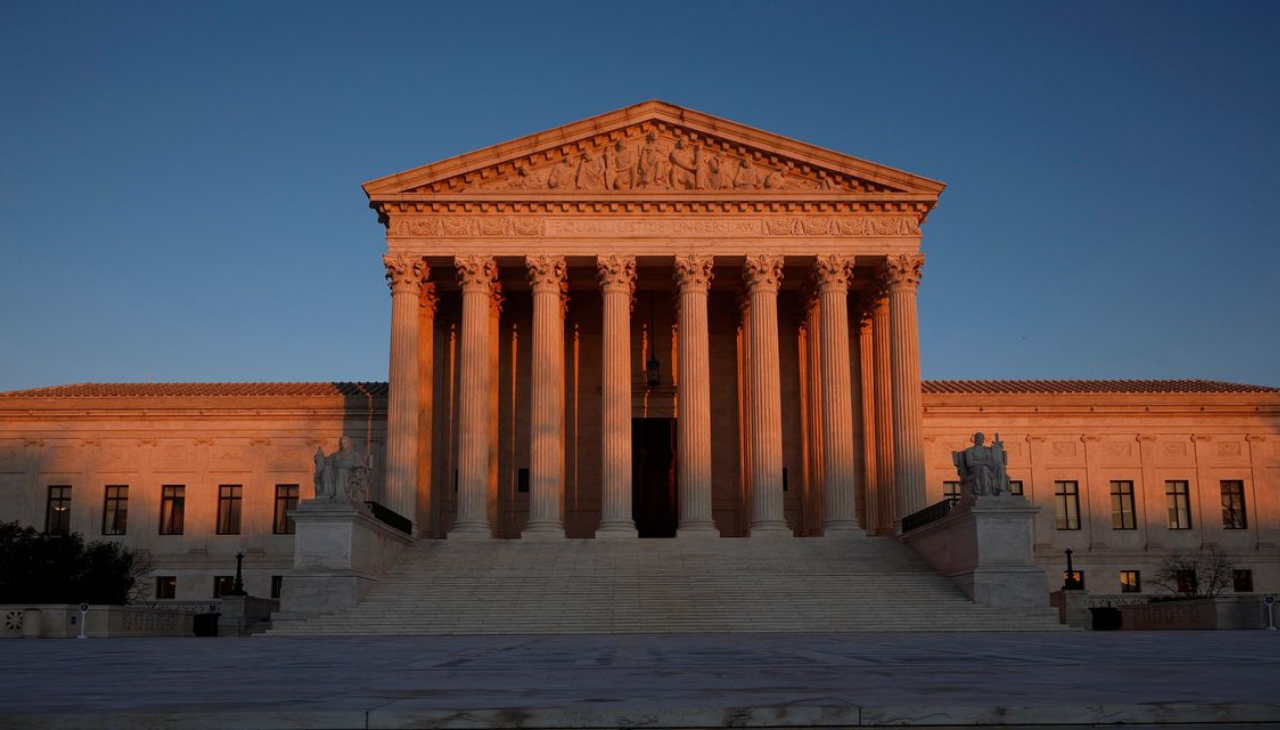
House Democrats introduce legislation to impose term limits on the United States Supreme Court
The measure suggests a drastic rearrangement of the court’s infrastructure.
On July 6, 2022, six US House of Representatives members introduced a bill to set limit terms for Supreme Court Justices. This move comes after increasing skepticism around one of the federal government’s most mysterious branches.
The Supreme Court Tenure Establishment and Retirement Modernization (TERM) Act of 2022 would require 18-year term limits for sitting Justices and continuous appointments by elected presidents in 1-3 year cadences with the “advice and consent of the Senate.”
Rep. Hank Johnson said in a statement, “This Supreme Court is increasingly facing a legitimacy crisis.” Johnson currently serves as the Chairman of the Judiciary Subcommittee on Courts, Intellectual Property and the Internet. Johnson is the bill’s sponsor.
Why it matters
America’s design of its highest court stands alone among global democracies. In the US, Justices have lifetime appointments with no term limits or age-driven retirements, resulting in some presidents appointing no Justices and others assigning as many as a third of the court.
Some House Representatives, such as Rep. Roe Khanna (D-CA-17), have been vocal about the need to introduce term limits, arguing that an unelected body should not have undue power on policy rulings.
READ:
An unelected judicial body that enjoys lifetime appointments shouldn’t be allowed to make policy decisions under the guise of handing down ‘objective’ rulings.
— Ro Khanna (@RoKhanna) July 15, 2022
We must prevent abuse of power & protect our democracy. We must pass term limits for SCOTUS.
As recently as June 2022, SCOTUS struck down the landmark Roe v. Wade, a 49-year ruling protecting the right to obtain an abortion without legal repercussions. The court’s decree sent states into a frenzy, with many enacting trigger laws that would immediately outlaw the medical procedures.
Respectively, Democratic states scrambled to assure constituents that abortion remained legal in their domain while simultaneously fending off Republican legislation that sought to restrict it severely.
“The Supreme Court has been too powerful for decades, deciding who wins elections, who can vote and get health care and even who lives and dies,” said Gabe Roth, Executive Director of Fix the Court.
Need to know
- The President would appoint justices every 1st and 3rd year, after a year in which there is a presidential election.
- Every justice will serve in regular active service for 18 years, after which the Justice shall be deemed to have retired.
- Require that justices serving as of the date of the enactment to assume the role of “senior justice.”
- Require the Supreme Court justice who most recently assumed senior status to fill in on the Court if the number of justices in regular active service falls below nine.
The big picture
Republicans have long raised concerns about term limits and retirement, stating such measures would lead to court packing, a strategy Democrats have pushed for in the past.
RELATED CONTENT
However, the Constitution does not require a fixed number of justices to serve on the nation’s highest court.
Article III, section 1 states that "[t]he judicial power of the United States, shall be vested in one Supreme Court, and in such inferior courts as the Congress may from time to time ordain and establish."
Dissent in Congress
During Justice Ketanji Brown Jackson’s nomination hearings, Republicans frequently questioned the nominee’s views on court packing. While Jackson did not emit an opinion, Congress members alluded that Jackson’s nomination was part of a more significant effort to pack the courts.
Sen. Tom Tillis went as far as to suggest that “dark money groups” were mobilizing to support Jackson’s nomination to fulfill that end goal.
“If we pack the court, the only thing that the Supreme Court has is its integrity and the esteem that the American people and the trust that they put into it. Packing the court could cause the Supreme Court from losing the trust of the American people,” Sen. Tillis said during questioning.
However, a poll conducted by Axios says otherwise. The conclusion indicates that 43% of Americans “have hardly” any trust in SCOTUS, a 27% variance increase from the previous month.
With stark partisan differences, it is unclear whether or not the measure would survive the 51-vote majority required to pass. Additionally, the philosophical view toward a court rearrangement remains evenly divided.











LEAVE A COMMENT: